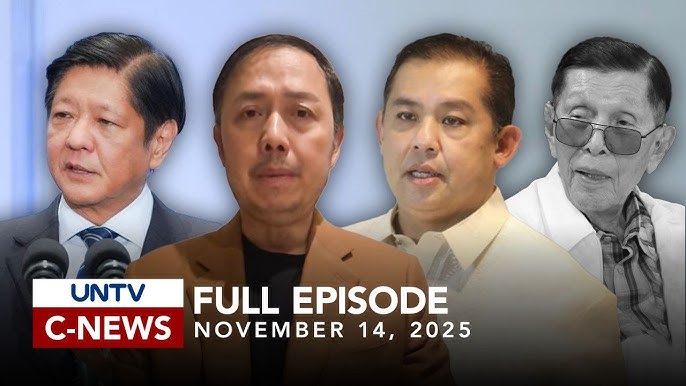Manila, Philippines – A former government insider has come forward with explosive claims about a massive 100-billion peso project insertion, allegedly directed to the residences of President Bongbong Marcos and Speaker Martin Romales. The revelations, shared during a Senate hearing, paint a troubling picture of hidden agendas, political maneuvering, and potential misuse of public funds.
Speaking under the pseudonym “Saldi,” the whistleblower said he was directly involved in the operation and faced explicit threats to stay silent:
“I was just following orders, but now I can no longer remain silent. I have receipts, evidence, and names. The truth will come out—regardless of the consequences.”
The Secret Orders

According to Saldi, the story began in 2024, when Secretary Mina Pangandaman informed him that a directive had come directly from the President:
“Insert 100 billion pesos worth of projects into BCAM.”
Saldi confirmed the instruction with Undersecretary Adrian Bersamin, who allegedly verified that the order came from President Marcos himself. When he reported the directive to then-Speaker Martin Romales, the response was chillingly simple:
“What the President wants, he gets.”
Saldi described receiving a detailed list of projects from Bersamin, allegedly delivered in a brown leather bag—a bag reportedly handled personally by President Marcos after the 2022 elections in Singapore. This detail convinced Saldi that the directive was indeed personal and binding.
Money, Projects, and Political Games
The whistleblower alleged that the 100 billion pesos was distributed strategically:
50 billion pesos went into program funds, carefully adjusted due to Department of Public Works and Highways (DPWH) allocations versus education budgets.
The remaining 50 billion pesos was funneled into unprogrammed funds, controlled through the Office of the President.
“The President’s command was absolute. Speaker Romales confirmed there was nothing anyone could do to stop it,” Saldi said.
He further revealed that he was warned not to return to the Philippines, under the guise of “protection”—but in reality, he claims, the promise meant he would serve as a cover for political maneuvering:
“They planned to use me as a scapegoat, a poster boy for their own lies.”
Senate Hearing Sparks Tension

During the Senate hearing, Saldi faced restrictions on how much he could reveal, due to his potential entry into the Witness Protection Program (WPP). Senators, including Kiko Pangilinan and Marcoleta, questioned the limits imposed on his testimony, citing public interest:
“How can the committee’s findings be affected by allowing the witness to speak freely? Why is the DOJ limiting transparency?” Senator Marcoleta asked.
Saldi’s testimony also implicated several lawmakers and contractors, suggesting that project allocations were closely tied to political influence:
Lawmakers reportedly received specific project allotments.
Contractors were coordinated to carry out projects, often chosen for political connections.
Portions of funds were allegedly held as “leadership allocations,” controlled by legislative officials.
Evidence and Verification
Saldi emphasized he possesses receipts, photos, and the names of key players. He also confirmed that he acted solely on instructions and did not personally benefit from the funds.
He pointed out discrepancies in project reporting, including differences between the submitted coordinates of projects and actual locations. Allegedly, certain project data were manipulated before reaching the President, raising questions about the accuracy and integrity of government reporting systems.
The Suspense of Silence
Saldi’s decision to speak comes after months of fear and careful planning. He left the Philippines on July 19, 2025, for a medical checkup and initially refrained from returning due to direct warnings. Now, he insists, the truth cannot remain hidden.
“For every Filipino, the truth must be told. I am ready to reveal everything—what I know, what I saw, and who is involved,” he said.
What’s Next?
The allegations shine a harsh light on the inner workings of government budgeting, the potential exploitation of public funds for political ends, and the challenges of balancing whistleblower protection with public accountability.
With receipts, names, and alleged photographic evidence, the story is far from over. If verified, it could represent one of the most audacious attempts to manipulate national funds in recent Philippine history.
The nation waits. The questions remain: Who knew, who allowed it, and how far did the orders go?
“I will no longer be silent. The full truth will be revealed,” Saldi warned, signaling a dramatic turn in this unfolding saga.





